Investment
Why Africa is pushing for its own credit rating system
Author
-
Pelumi is a freelance writer with over five years of experience spanning content, creative, and academic writing. His work cuts across lifestyle, cryptocurrency, self-improvement, and technical documentation, and he has published academic papers that reflect his blend of curiosity and research. He currently collaborates with Finance in Africa, covering stories on the continent’s financial landscape. Connect with him on LinkedIn and explore his portfolio on Muck Rack.
Author
-
Pelumi is a freelance writer with over five years of experience spanning content, creative, and academic writing. His work cuts across lifestyle, cryptocurrency, self-improvement, and technical documentation, and he has published academic papers that reflect his blend of curiosity and research. He currently collaborates with Finance in Africa, covering stories on the continent’s financial landscape. Connect with him on LinkedIn and explore his portfolio on Muck Rack.
Nigeria’s capital inflow climbs 156% to $11m but investor caution persists
Author
-
Amarachi is a finance writer with a knack for turning complex economic data into compelling stories. With over half a decade of writing experience—spanning content creation, journalism, and on-the-ground reporting—she found herself in finance by accident but stayed for the thrill of decoding numbers that shape economies. Now, she covers the policies, trends, and market shifts that drive Africa’s financial landscape, making crucial information accessible to readers across the continent.
At Finance In Africa, Amarachi delivers sharp, data-driven insights tailored for bankers, investors, and finance professionals. She analyses central bank policies, fiscal reforms, and regulatory shifts, translating their impact into actionable intelligence. Her coverage spans banking performance, inflation, currency movements, capital markets, fixed income, and corporate earnings—helping industry players navigate risks and opportunities with confidence.
Connect with her on LinkedIn: Amarachi Orjiude-Ndibe.
Author
-
Amarachi is a finance writer with a knack for turning complex economic data into compelling stories. With over half a decade of writing experience—spanning content creation, journalism, and on-the-ground reporting—she found herself in finance by accident but stayed for the thrill of decoding numbers that shape economies. Now, she covers the policies, trends, and market shifts that drive Africa’s financial landscape, making crucial information accessible to readers across the continent.
At Finance In Africa, Amarachi delivers sharp, data-driven insights tailored for bankers, investors, and finance professionals. She analyses central bank policies, fiscal reforms, and regulatory shifts, translating their impact into actionable intelligence. Her coverage spans banking performance, inflation, currency movements, capital markets, fixed income, and corporate earnings—helping industry players navigate risks and opportunities with confidence.
Connect with her on LinkedIn: Amarachi Orjiude-Ndibe.
Niger secures $91m IMF funding to close spending gap
Author
-
Amarachi is a finance writer with a knack for turning complex economic data into compelling stories. With over half a decade of writing experience—spanning content creation, journalism, and on-the-ground reporting—she found herself in finance by accident but stayed for the thrill of decoding numbers that shape economies. Now, she covers the policies, trends, and market shifts that drive Africa’s financial landscape, making crucial information accessible to readers across the continent.
At Finance In Africa, Amarachi delivers sharp, data-driven insights tailored for bankers, investors, and finance professionals. She analyses central bank policies, fiscal reforms, and regulatory shifts, translating their impact into actionable intelligence. Her coverage spans banking performance, inflation, currency movements, capital markets, fixed income, and corporate earnings—helping industry players navigate risks and opportunities with confidence.
Connect with her on LinkedIn: Amarachi Orjiude-Ndibe.
Author
-
Amarachi is a finance writer with a knack for turning complex economic data into compelling stories. With over half a decade of writing experience—spanning content creation, journalism, and on-the-ground reporting—she found herself in finance by accident but stayed for the thrill of decoding numbers that shape economies. Now, she covers the policies, trends, and market shifts that drive Africa’s financial landscape, making crucial information accessible to readers across the continent.
At Finance In Africa, Amarachi delivers sharp, data-driven insights tailored for bankers, investors, and finance professionals. She analyses central bank policies, fiscal reforms, and regulatory shifts, translating their impact into actionable intelligence. Her coverage spans banking performance, inflation, currency movements, capital markets, fixed income, and corporate earnings—helping industry players navigate risks and opportunities with confidence.
Connect with her on LinkedIn: Amarachi Orjiude-Ndibe.
Why Nigerian CEOs are betting on stronger earnings in 2026
Author
-
Amarachi is a finance writer with a knack for turning complex economic data into compelling stories. With over half a decade of writing experience—spanning content creation, journalism, and on-the-ground reporting—she found herself in finance by accident but stayed for the thrill of decoding numbers that shape economies. Now, she covers the policies, trends, and market shifts that drive Africa’s financial landscape, making crucial information accessible to readers across the continent.
At Finance In Africa, Amarachi delivers sharp, data-driven insights tailored for bankers, investors, and finance professionals. She analyses central bank policies, fiscal reforms, and regulatory shifts, translating their impact into actionable intelligence. Her coverage spans banking performance, inflation, currency movements, capital markets, fixed income, and corporate earnings—helping industry players navigate risks and opportunities with confidence.
Connect with her on LinkedIn: Amarachi Orjiude-Ndibe.
Author
-
Amarachi is a finance writer with a knack for turning complex economic data into compelling stories. With over half a decade of writing experience—spanning content creation, journalism, and on-the-ground reporting—she found herself in finance by accident but stayed for the thrill of decoding numbers that shape economies. Now, she covers the policies, trends, and market shifts that drive Africa’s financial landscape, making crucial information accessible to readers across the continent.
At Finance In Africa, Amarachi delivers sharp, data-driven insights tailored for bankers, investors, and finance professionals. She analyses central bank policies, fiscal reforms, and regulatory shifts, translating their impact into actionable intelligence. Her coverage spans banking performance, inflation, currency movements, capital markets, fixed income, and corporate earnings—helping industry players navigate risks and opportunities with confidence.
Connect with her on LinkedIn: Amarachi Orjiude-Ndibe.
Nigeria leads, Egypt lags as Africa’s private sector posts mixed performance in 2025
Author
-
Amarachi is a finance writer with a knack for turning complex economic data into compelling stories. With over half a decade of writing experience—spanning content creation, journalism, and on-the-ground reporting—she found herself in finance by accident but stayed for the thrill of decoding numbers that shape economies. Now, she covers the policies, trends, and market shifts that drive Africa’s financial landscape, making crucial information accessible to readers across the continent.
At Finance In Africa, Amarachi delivers sharp, data-driven insights tailored for bankers, investors, and finance professionals. She analyses central bank policies, fiscal reforms, and regulatory shifts, translating their impact into actionable intelligence. Her coverage spans banking performance, inflation, currency movements, capital markets, fixed income, and corporate earnings—helping industry players navigate risks and opportunities with confidence.
Connect with her on LinkedIn: Amarachi Orjiude-Ndibe.
Author
-
Amarachi is a finance writer with a knack for turning complex economic data into compelling stories. With over half a decade of writing experience—spanning content creation, journalism, and on-the-ground reporting—she found herself in finance by accident but stayed for the thrill of decoding numbers that shape economies. Now, she covers the policies, trends, and market shifts that drive Africa’s financial landscape, making crucial information accessible to readers across the continent.
At Finance In Africa, Amarachi delivers sharp, data-driven insights tailored for bankers, investors, and finance professionals. She analyses central bank policies, fiscal reforms, and regulatory shifts, translating their impact into actionable intelligence. Her coverage spans banking performance, inflation, currency movements, capital markets, fixed income, and corporate earnings—helping industry players navigate risks and opportunities with confidence.
Connect with her on LinkedIn: Amarachi Orjiude-Ndibe.
US travel restrictions risk cutting 120k African business trips annually
Author
-
Pelumi is a freelance writer with over five years of experience spanning content, creative, and academic writing. His work cuts across lifestyle, cryptocurrency, self-improvement, and technical documentation, and he has published academic papers that reflect his blend of curiosity and research. He currently collaborates with Finance in Africa, covering stories on the continent’s financial landscape. Connect with him on LinkedIn and explore his portfolio on Muck Rack.
Author
-
Pelumi is a freelance writer with over five years of experience spanning content, creative, and academic writing. His work cuts across lifestyle, cryptocurrency, self-improvement, and technical documentation, and he has published academic papers that reflect his blend of curiosity and research. He currently collaborates with Finance in Africa, covering stories on the continent’s financial landscape. Connect with him on LinkedIn and explore his portfolio on Muck Rack.
Africa’s sovereign credit ratings 2025: How Moody’s, S&P, Fitch are repricing risk
Author
-
Pelumi is a freelance writer with over five years of experience spanning content, creative, and academic writing. His work cuts across lifestyle, cryptocurrency, self-improvement, and technical documentation, and he has published academic papers that reflect his blend of curiosity and research. He currently collaborates with Finance in Africa, covering stories on the continent’s financial landscape. Connect with him on LinkedIn and explore his portfolio on Muck Rack.
Author
-
Pelumi is a freelance writer with over five years of experience spanning content, creative, and academic writing. His work cuts across lifestyle, cryptocurrency, self-improvement, and technical documentation, and he has published academic papers that reflect his blend of curiosity and research. He currently collaborates with Finance in Africa, covering stories on the continent’s financial landscape. Connect with him on LinkedIn and explore his portfolio on Muck Rack.
AfDB faces $12bn funding shortfall despite record donor round
Author
-
Amarachi is a finance writer with a knack for turning complex economic data into compelling stories. With over half a decade of writing experience—spanning content creation, journalism, and on-the-ground reporting—she found herself in finance by accident but stayed for the thrill of decoding numbers that shape economies. Now, she covers the policies, trends, and market shifts that drive Africa’s financial landscape, making crucial information accessible to readers across the continent.
At Finance In Africa, Amarachi delivers sharp, data-driven insights tailored for bankers, investors, and finance professionals. She analyses central bank policies, fiscal reforms, and regulatory shifts, translating their impact into actionable intelligence. Her coverage spans banking performance, inflation, currency movements, capital markets, fixed income, and corporate earnings—helping industry players navigate risks and opportunities with confidence.
Connect with her on LinkedIn: Amarachi Orjiude-Ndibe.
Author
-
Amarachi is a finance writer with a knack for turning complex economic data into compelling stories. With over half a decade of writing experience—spanning content creation, journalism, and on-the-ground reporting—she found herself in finance by accident but stayed for the thrill of decoding numbers that shape economies. Now, she covers the policies, trends, and market shifts that drive Africa’s financial landscape, making crucial information accessible to readers across the continent.
At Finance In Africa, Amarachi delivers sharp, data-driven insights tailored for bankers, investors, and finance professionals. She analyses central bank policies, fiscal reforms, and regulatory shifts, translating their impact into actionable intelligence. Her coverage spans banking performance, inflation, currency movements, capital markets, fixed income, and corporate earnings—helping industry players navigate risks and opportunities with confidence.
Connect with her on LinkedIn: Amarachi Orjiude-Ndibe.
Why Africa’s largest bank is backing Safaricom Ethiopia with $138m facility
Author
-
I’m building Finance in Africa, a platform making financial information on banking, insurance, capital markets, and fintech across the continent more accessible and actionable. My work sits at the intersection of journalism, finance, technology and storytelling—with a focus on driving industry insight and professional relevance.
Previously, I was Brand Storyteller at Moniepoint, where I led thought leadership and business storytelling that shaped investor conversations and unlocked partnerships. I also served as Managing Editor at Techpoint Africa, where I directed coverage of Africa’s fintech and innovation economy. I’ve developed industry reports, interviewed global tech and finance leaders, and co-produced events and podcasts that reached hundreds of thousands.
Let’s connect on LinkedIn or Twitter (sorry X), or send tips to emmanuel@financeinafrica.com.
Author
-
I’m building Finance in Africa, a platform making financial information on banking, insurance, capital markets, and fintech across the continent more accessible and actionable. My work sits at the intersection of journalism, finance, technology and storytelling—with a focus on driving industry insight and professional relevance.
Previously, I was Brand Storyteller at Moniepoint, where I led thought leadership and business storytelling that shaped investor conversations and unlocked partnerships. I also served as Managing Editor at Techpoint Africa, where I directed coverage of Africa’s fintech and innovation economy. I’ve developed industry reports, interviewed global tech and finance leaders, and co-produced events and podcasts that reached hundreds of thousands.
Let’s connect on LinkedIn or Twitter (sorry X), or send tips to emmanuel@financeinafrica.com.
Mauritius overtakes Nigeria in private equity crown as deals quadruple to $1.25bn
Author
-
Bunmi holds a degree in Economics from the University of Lagos and has over seven years of experience in content writing.
Her career includes roles as a financial and business journalist at BusinessDay Media and TechCabal, as well as leading the research team at SBM Intelligence—an Africa-focused market intelligence and strategic consulting firm.
She currently serves as Editor at Finance in Africa, a subsidiary of BusinessFront, publishers of Techpoint Africa, Energy in Africa. Catch up with her on Linkedin Bunmi Bailey.
Author
-
Bunmi holds a degree in Economics from the University of Lagos and has over seven years of experience in content writing.
Her career includes roles as a financial and business journalist at BusinessDay Media and TechCabal, as well as leading the research team at SBM Intelligence—an Africa-focused market intelligence and strategic consulting firm.
She currently serves as Editor at Finance in Africa, a subsidiary of BusinessFront, publishers of Techpoint Africa, Energy in Africa. Catch up with her on Linkedin Bunmi Bailey.
Anglo–Teck merger drives trillion rand private equity boom in South Africa
Author
-
Bunmi holds a degree in Economics from the University of Lagos and has over seven years of experience in content writing.
Her career includes roles as a financial and business journalist at BusinessDay Media and TechCabal, as well as leading the research team at SBM Intelligence—an Africa-focused market intelligence and strategic consulting firm.
She currently serves as Editor at Finance in Africa, a subsidiary of BusinessFront, publishers of Techpoint Africa, Energy in Africa. Catch up with her on Linkedin Bunmi Bailey.
Author
-
Bunmi holds a degree in Economics from the University of Lagos and has over seven years of experience in content writing.
Her career includes roles as a financial and business journalist at BusinessDay Media and TechCabal, as well as leading the research team at SBM Intelligence—an Africa-focused market intelligence and strategic consulting firm.
She currently serves as Editor at Finance in Africa, a subsidiary of BusinessFront, publishers of Techpoint Africa, Energy in Africa. Catch up with her on Linkedin Bunmi Bailey.
71% of African CEOs are investing in AI and talent to drive growth – KPMG
Author
-
Bunmi holds a degree in Economics from the University of Lagos and has over seven years of experience in content writing.
Her career includes roles as a financial and business journalist at BusinessDay Media and TechCabal, as well as leading the research team at SBM Intelligence—an Africa-focused market intelligence and strategic consulting firm.
She currently serves as Editor at Finance in Africa, a subsidiary of BusinessFront, publishers of Techpoint Africa, Energy in Africa. Catch up with her on Linkedin Bunmi Bailey.
Author
-
Bunmi holds a degree in Economics from the University of Lagos and has over seven years of experience in content writing.
Her career includes roles as a financial and business journalist at BusinessDay Media and TechCabal, as well as leading the research team at SBM Intelligence—an Africa-focused market intelligence and strategic consulting firm.
She currently serves as Editor at Finance in Africa, a subsidiary of BusinessFront, publishers of Techpoint Africa, Energy in Africa. Catch up with her on Linkedin Bunmi Bailey.
Startup funding in Africa hits three-year high of $2.7bn amid Trump’s tariffs
Author
-
Bunmi holds a degree in Economics from the University of Lagos and has over seven years of experience in content writing.
Her career includes roles as a financial and business journalist at BusinessDay Media and TechCabal, as well as leading the research team at SBM Intelligence—an Africa-focused market intelligence and strategic consulting firm.
She currently serves as Editor at Finance in Africa, a subsidiary of BusinessFront, publishers of Techpoint Africa, Energy in Africa. Catch up with her on Linkedin Bunmi Bailey.
Author
-
Bunmi holds a degree in Economics from the University of Lagos and has over seven years of experience in content writing.
Her career includes roles as a financial and business journalist at BusinessDay Media and TechCabal, as well as leading the research team at SBM Intelligence—an Africa-focused market intelligence and strategic consulting firm.
She currently serves as Editor at Finance in Africa, a subsidiary of BusinessFront, publishers of Techpoint Africa, Energy in Africa. Catch up with her on Linkedin Bunmi Bailey.
Côte d’Ivoire climbs into Africa’s top 10 investment hubs on industrial reforms
Author
-
Bunmi holds a degree in Economics from the University of Lagos and has over seven years of experience in content writing.
Her career includes roles as a financial and business journalist at BusinessDay Media and TechCabal, as well as leading the research team at SBM Intelligence—an Africa-focused market intelligence and strategic consulting firm.
She currently serves as Editor at Finance in Africa, a subsidiary of BusinessFront, publishers of Techpoint Africa, Energy in Africa. Catch up with her on Linkedin Bunmi Bailey.
Author
-
Bunmi holds a degree in Economics from the University of Lagos and has over seven years of experience in content writing.
Her career includes roles as a financial and business journalist at BusinessDay Media and TechCabal, as well as leading the research team at SBM Intelligence—an Africa-focused market intelligence and strategic consulting firm.
She currently serves as Editor at Finance in Africa, a subsidiary of BusinessFront, publishers of Techpoint Africa, Energy in Africa. Catch up with her on Linkedin Bunmi Bailey.
Nigeria’s new pension rule seen unlocking $600m for private equity
Author
-
Bunmi holds a degree in Economics from the University of Lagos and has over seven years of experience in content writing.
Her career includes roles as a financial and business journalist at BusinessDay Media and TechCabal, as well as leading the research team at SBM Intelligence—an Africa-focused market intelligence and strategic consulting firm.
She currently serves as Editor at Finance in Africa, a subsidiary of BusinessFront, publishers of Techpoint Africa, Energy in Africa. Catch up with her on Linkedin Bunmi Bailey.
Author
-
Bunmi holds a degree in Economics from the University of Lagos and has over seven years of experience in content writing.
Her career includes roles as a financial and business journalist at BusinessDay Media and TechCabal, as well as leading the research team at SBM Intelligence—an Africa-focused market intelligence and strategic consulting firm.
She currently serves as Editor at Finance in Africa, a subsidiary of BusinessFront, publishers of Techpoint Africa, Energy in Africa. Catch up with her on Linkedin Bunmi Bailey.
MultiChoice buyout drives $5bn surge in Africa’s private deals
Author
-
Amarachi is a finance writer with a knack for turning complex economic data into compelling stories. With over half a decade of writing experience—spanning content creation, journalism, and on-the-ground reporting—she found herself in finance by accident but stayed for the thrill of decoding numbers that shape economies. Now, she covers the policies, trends, and market shifts that drive Africa’s financial landscape, making crucial information accessible to readers across the continent.
At Finance In Africa, Amarachi delivers sharp, data-driven insights tailored for bankers, investors, and finance professionals. She analyses central bank policies, fiscal reforms, and regulatory shifts, translating their impact into actionable intelligence. Her coverage spans banking performance, inflation, currency movements, capital markets, fixed income, and corporate earnings—helping industry players navigate risks and opportunities with confidence.
Connect with her on LinkedIn: Amarachi Orjiude-Ndibe.
Author
-
Amarachi is a finance writer with a knack for turning complex economic data into compelling stories. With over half a decade of writing experience—spanning content creation, journalism, and on-the-ground reporting—she found herself in finance by accident but stayed for the thrill of decoding numbers that shape economies. Now, she covers the policies, trends, and market shifts that drive Africa’s financial landscape, making crucial information accessible to readers across the continent.
At Finance In Africa, Amarachi delivers sharp, data-driven insights tailored for bankers, investors, and finance professionals. She analyses central bank policies, fiscal reforms, and regulatory shifts, translating their impact into actionable intelligence. Her coverage spans banking performance, inflation, currency movements, capital markets, fixed income, and corporate earnings—helping industry players navigate risks and opportunities with confidence.
Connect with her on LinkedIn: Amarachi Orjiude-Ndibe.
Top stories
Leverage how money works in Africa
Get exclusive insights across banking, payments, and technology to gain a competitive advantage in Africa’s financial sector.
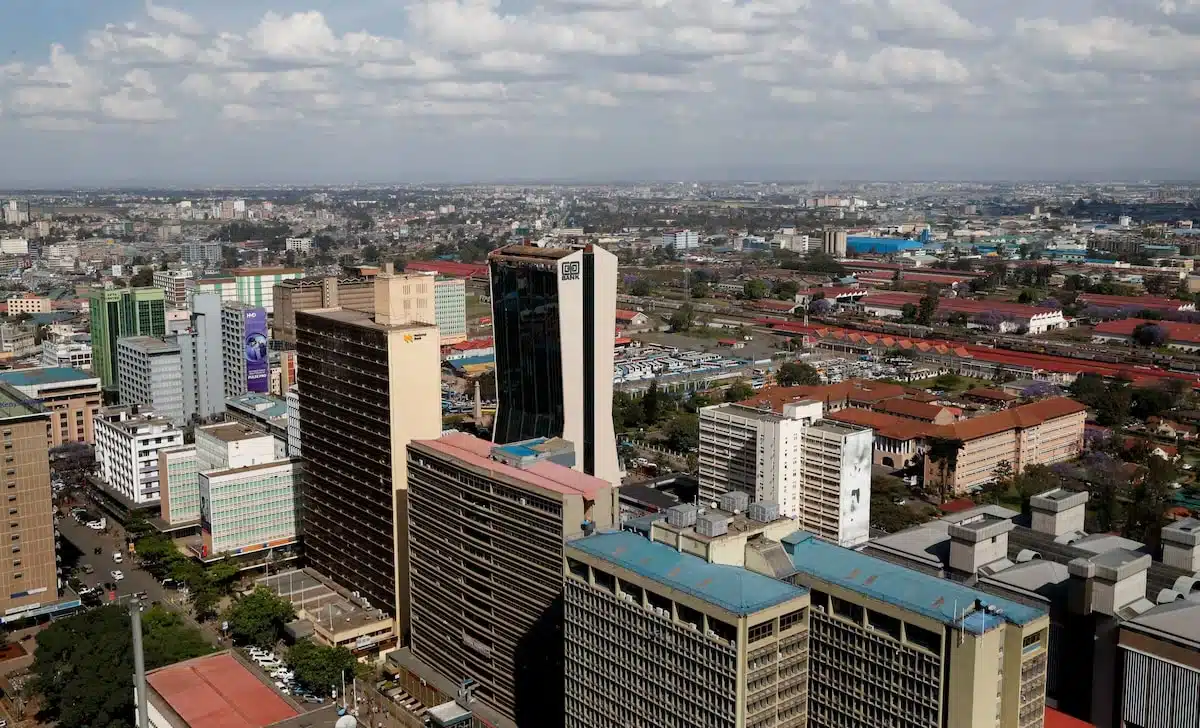
In the financial world, a credit rating is supposed to be an objective score. In reality, these ratings are often clouded by what many spectators perceive as bias.

A growing divergence between Nigeria’s foreign portfolio investments and FDI inflows has reawakened concerns about investor appetite for longer-term commitments in the West African economy.

The total package is split in two: a $61 million disbursement under the Extended Credit Facility, alongside a $30 million commitment from the Resilience and Sustainability Facility, which supports investments aimed at strengthening climate resilience in Niger.
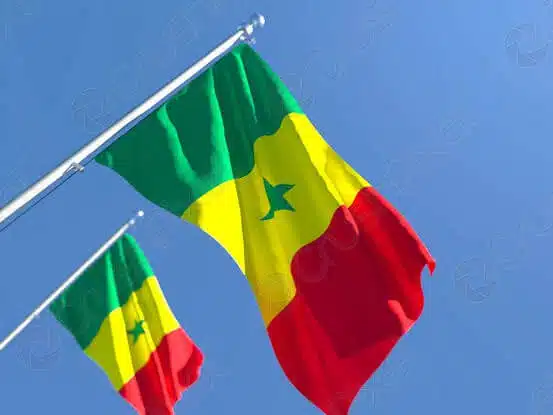
Senegal secures funding to repay $485m Eurobond dues, sparking a bond rally but raising concerns over rising short-term borrowing risks.

The majority of Nigerian chief executives are stepping into 2026 with growing confidence that improved business conditions at home will translate to stronger earnings to their organizations even as growth risks deepen.

PMI surveys show Nigeria and Uganda sustaining expansion in 2025, while Egypt, Kenya and South Africa lagged, reflecting divergent inflation trends, currency pressures and uneven domestic demand.

The United States recently expanded travel restrictions targeting citizens from multiple African countries, suspending entry for several key visa categories starting January 1, 2026.
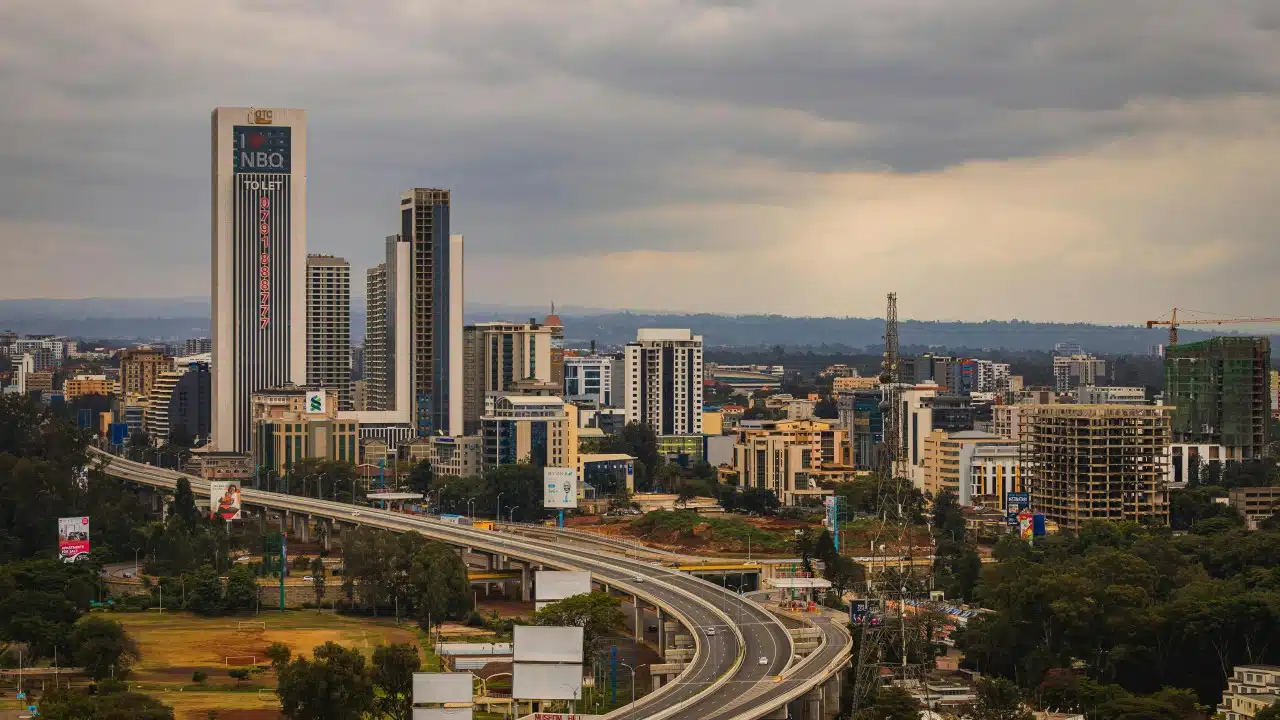
Africa heads into 2026 with sovereign credit assessments that reflect a continent moving at different speeds. Ratings from Moody’s, S&P Global Ratings, and Fitch Ratings now show a wider gap between countries
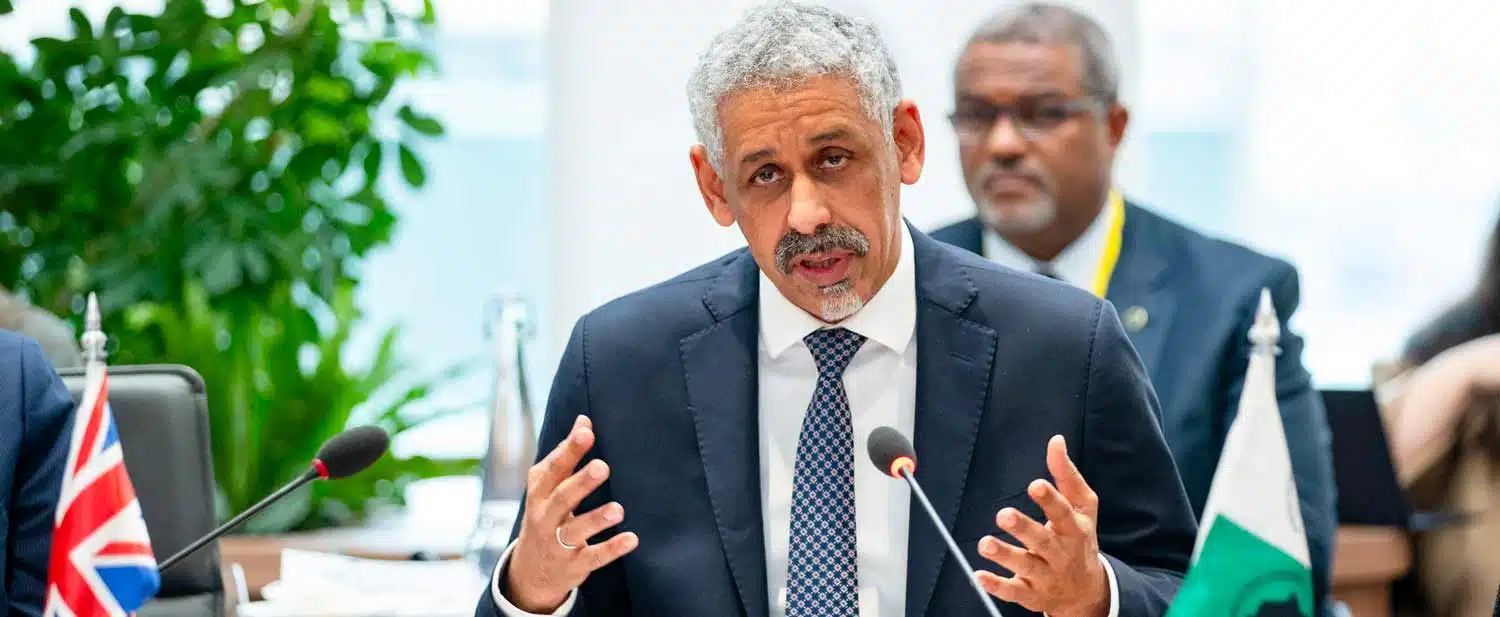
While the replenishment outcome represents a 23% increase over the previous round, it fell well short of the AfDB’s $25 billion target, highlighting challenges in sustaining concessional funding amid a tougher global climate.
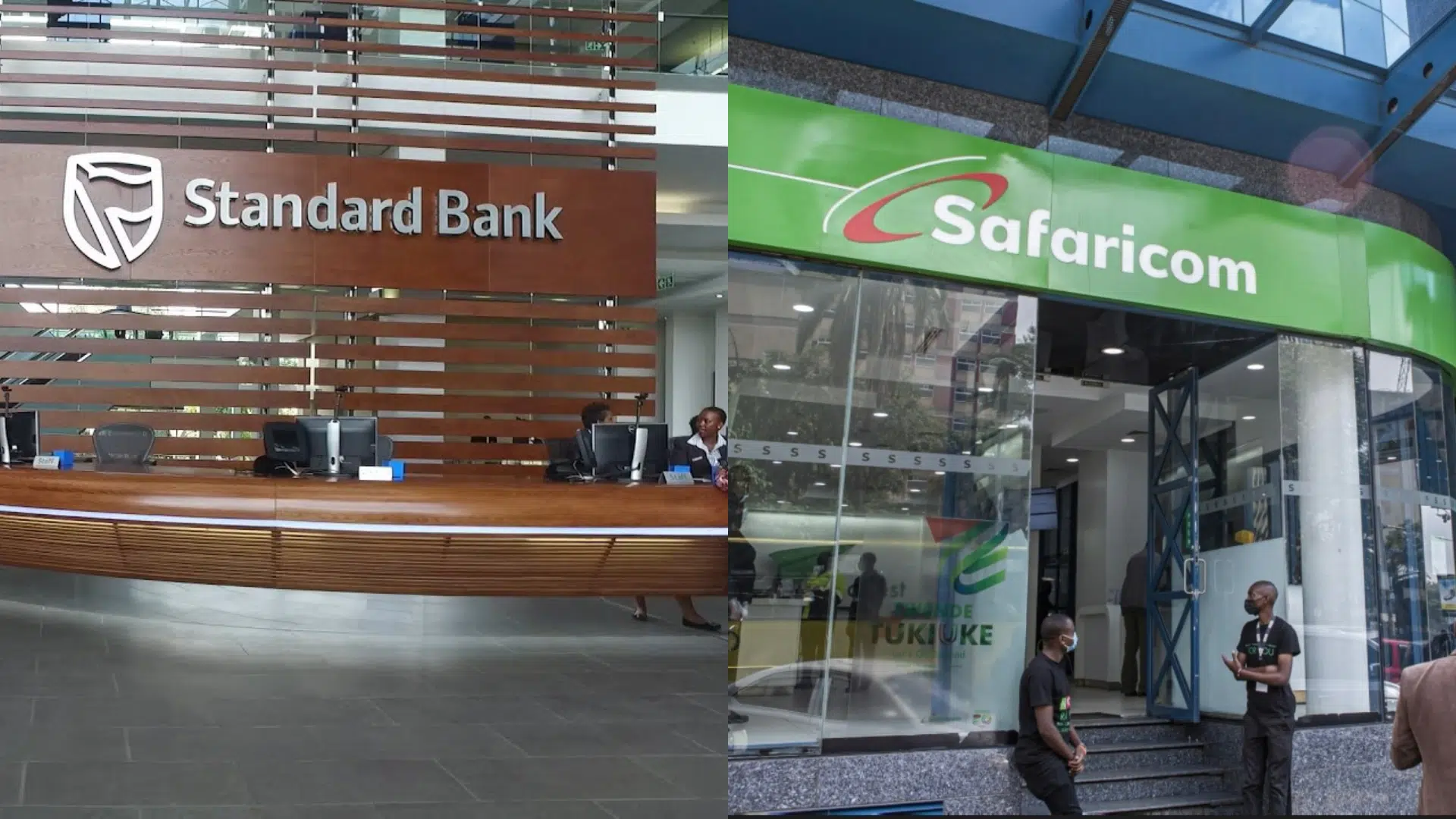
Standard Bank has agreed to provide a $138m facility to Safaricom Ethiopia, backing network expansion as the operator scales in Africa’s second-most populous market.

Despite recording six transactions, the island nation attracted the highest deal value on the continent (excluding South Africa), with private equity inflows surging by 311.3% to $1.25bn in the first nine months of this year—the highest in three years—from $38.9m.

DealMakers Africa noted that Africa’s most industrialised economy recorded 273 deals worth R1.62trn ($89.5bn) between January and September — a 239.6% surge from the same period in 2024.

The survey, which reflects the views of 130 CEOs across Southern, East, and West Africa, shows that 26% intend to allocate more than 20% of their annual budgets to AI adoption. This is nearly double the global average of 14%.

New data from Africa: The Big Deal shows that start-ups on the continent raised $2.65bn between January and October 2025, up 56% from $1.7bn in the same period last year.
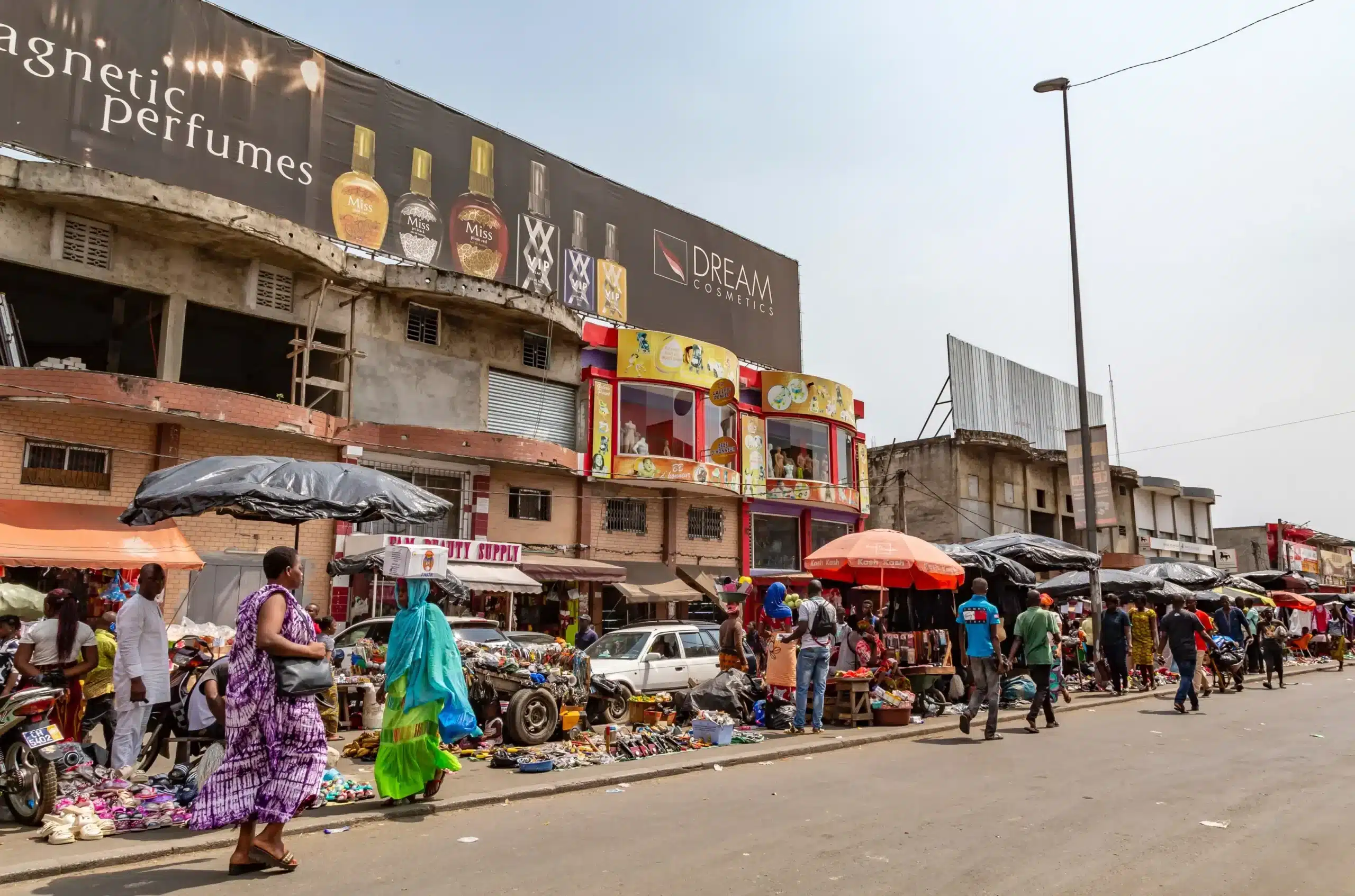
According to the latest ‘Where to Invest in Africa’ report by Rand Merchant Bank (RMB), the country climbed eight places — from 16th to eighth position — among 31 African economies assessed.

In Nigeria’s fast-evolving financial ecosystem, one persistent challenge continues to…

The National Pension Commission (PenCom) in September announced that the new regulation applies to Nigerians living and working abroad, as well as employees of foreign companies and international organisations in Nigeria not covered by the Pension Reform Act (PRA) of 2014.
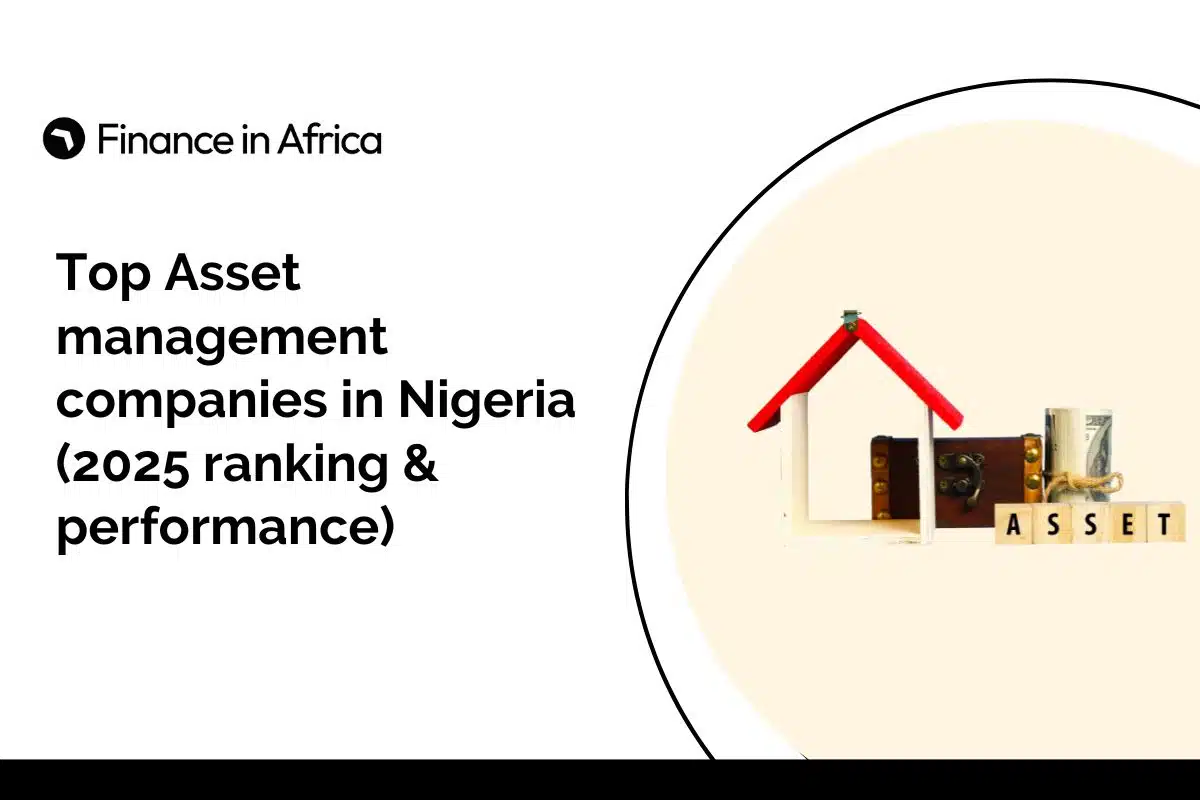
Discover the top asset management companies in Nigeria for 2025, ranked by performance, AUM, and reliability to help you choose the best investment partner.

Despite the headline-making buyout, Stears data shows that smaller deals dominated activity, signaling deepening investor appetite for mid-tier and early-stage opportunities.
Leverage how money works in Africa
Get exclusive insights across banking, payments, and technology to gain a competitive advantage in Africa’s financial sector.

